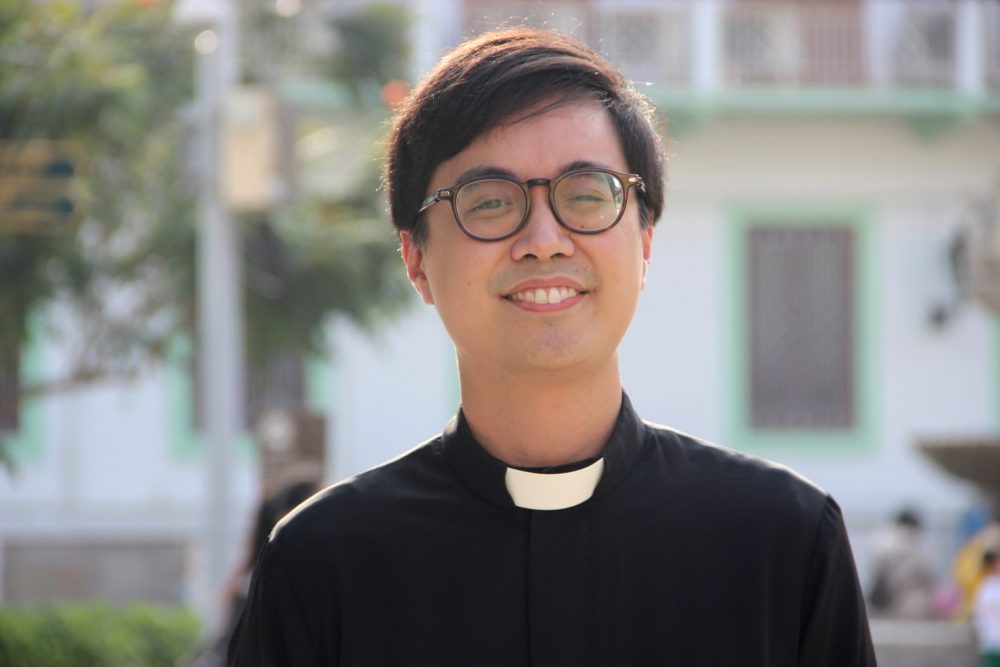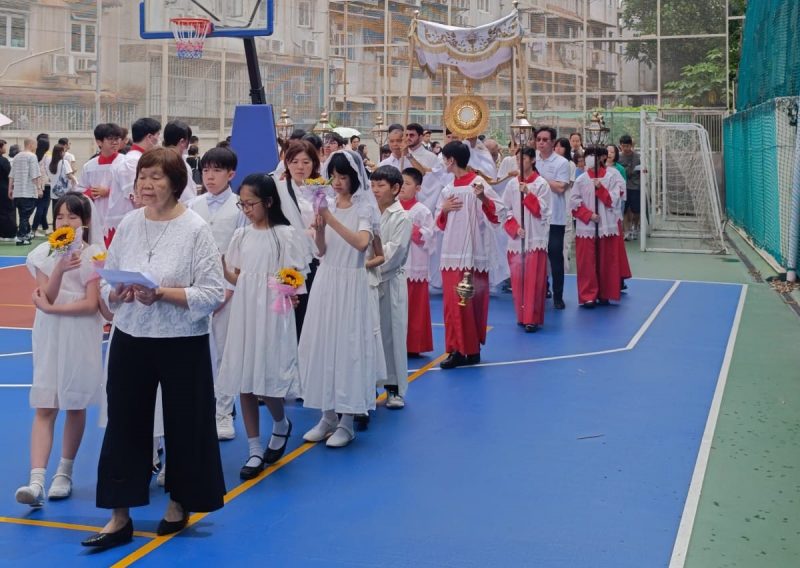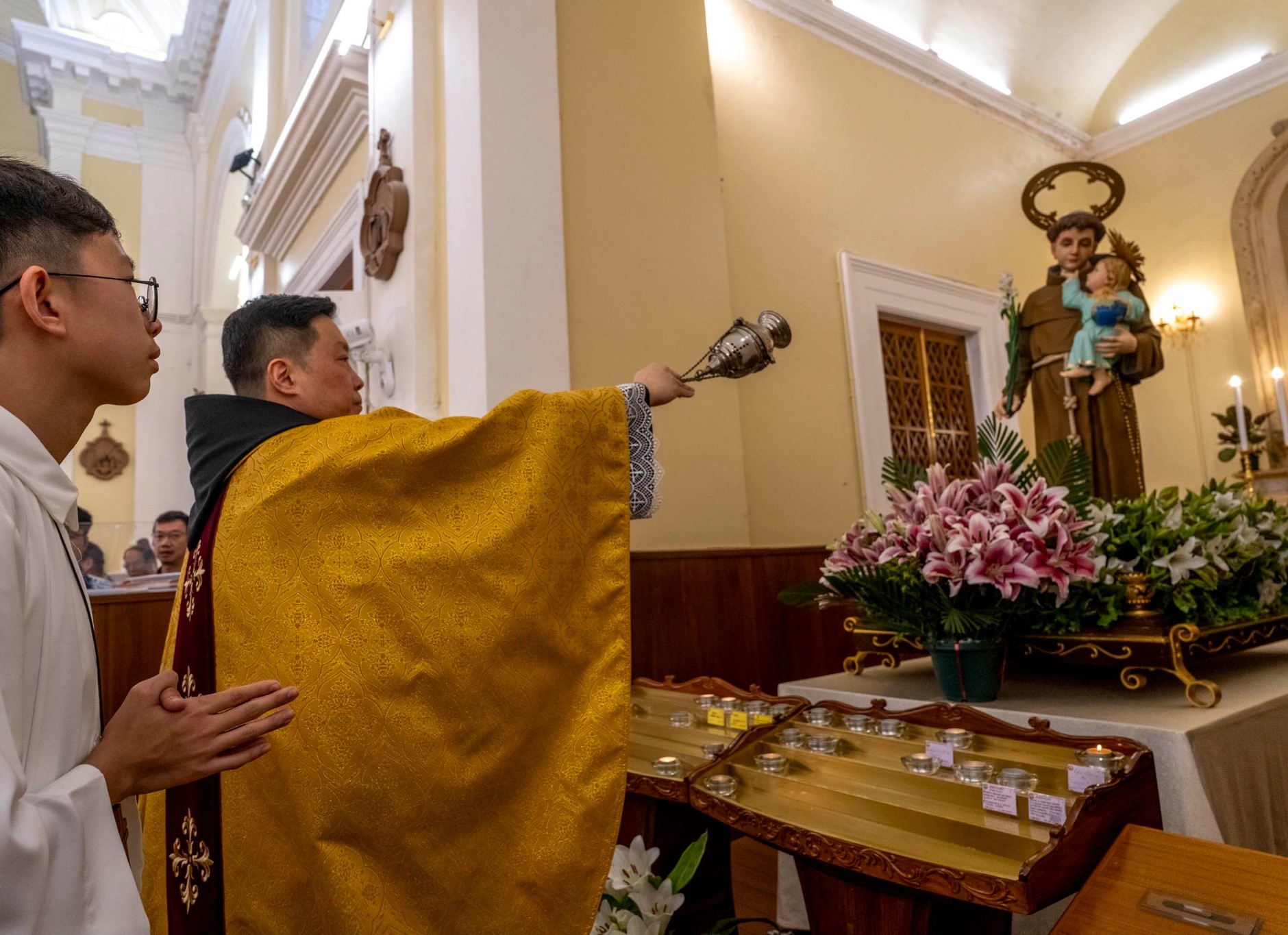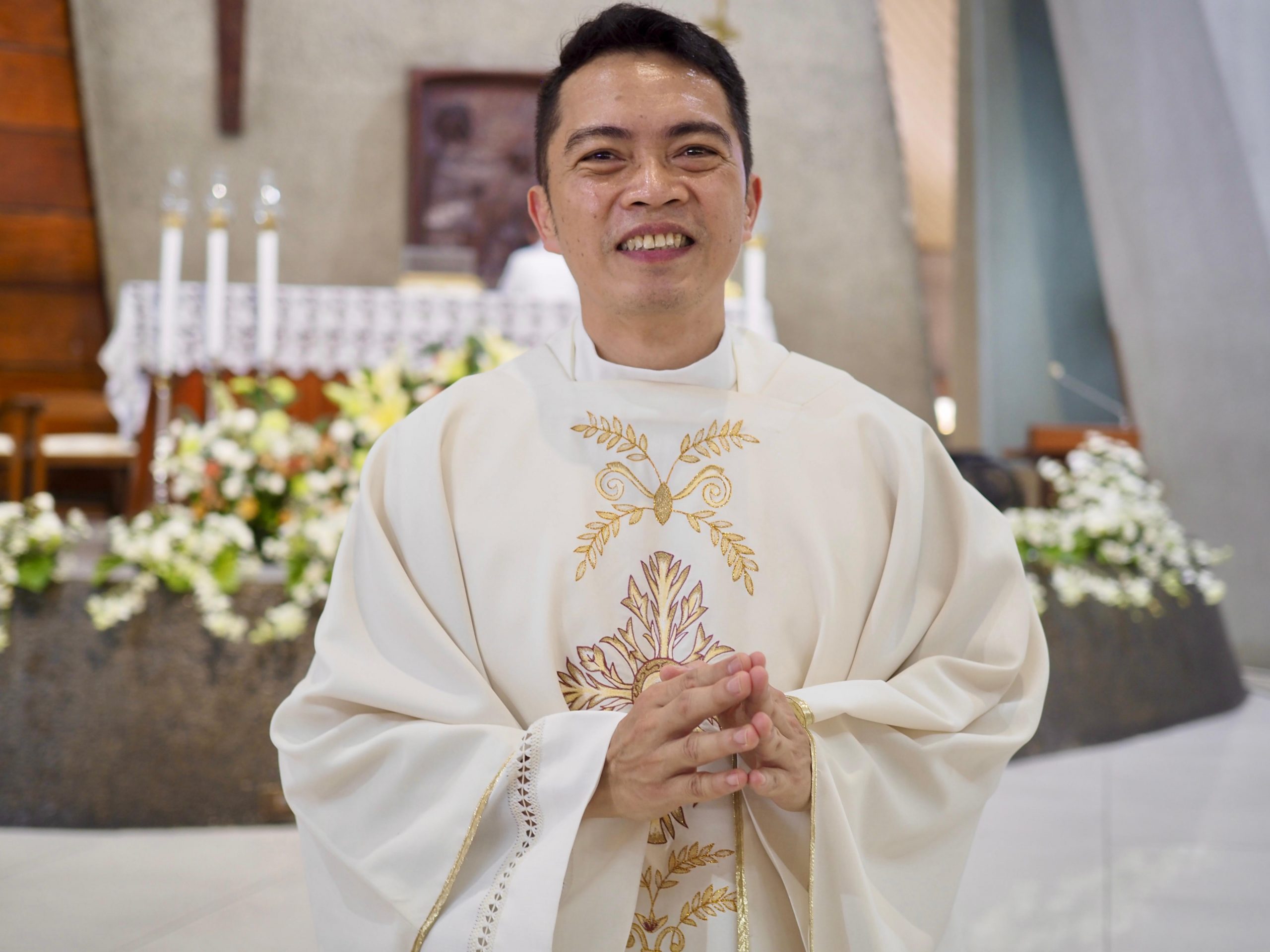Marco Carvalho
Invested as a Lector by Bishop Stephen Lee last week, Adriano Agostinho is two steps away from offering the Macanese community something that it has not had for a very long time: a priest. With a degree in Medicine, the young Macanese seminarian says he desires to fulfil his vocation at the service of Macau’s Catholics. The greatest challenge he faces, Agostinho claims, is to reawaken faith in those that are too accommodated to the world. The seminarian spoke with O Clarim.
Last week, you were invested as a Lector by Bishop Stephen Lee and you took one more step towards priesthood. This was, undoubtedly, a moment to remember…
It was indeed. It was a moment of joy, but also a moment of gratitude. An opportunity for me to be thankful to God for the protection he gave me until now, for having guided me. Four years have passed since I joined the Seminary. It is a good deal of time and I am grateful to God for the moment I have experienced. As you said, it’s a step forward. A step forward towards priesthood, the fulfilment of my vocation.
When did you feel that you were being called by God to become a priest? You studied something completely different before you made up your mind and decided to embark on this long journey to priesthood. When did you realize that your life would only be fulfilled by serving God?
I have always tried to live my life according to the commandments of God, to live my life according to His word. I tried to love Him and know Him better. Sometimes, it was not that easy. There were those difficulties that are typical of adolescence. I felt many doubts, but, thanks to God, I also felt compelled to continue. To paraphrase Saint Thérèse of Lisieux, if God hadn’t removed obstacles from my life, I wouldn’t be here, would I? I am also very grateful to God for that; I am very grateful because he protected me and guided me until now. When I was 19, I was in Portugal studying medicine, I was in my second year and, one winter night, when I was praying, I strongly experienced that God was calling me to become a priest. Initially, of course, this was not easy to digest. It is, in fact, quite a big decision. I had to give up on certain things and certain plans that I had been making throughout my life, to put aside some expectations. But, over time, this idea, this calling that I felt, became more of a certainty. After completing my Medicine degree, I made the decision to answer His call and enter the Seminary, to find out what it is that God wants from me.
You never worked as a doctor, but you do have a degree in Medicine. How can this experience complement and enrich your journey in the service of God?
I think it enriches my experience a lot. Medicine is not something that one can easily study. There are several aspects to it, but I would emphasize two.
First, there is the intellectual aspect. Medicine is something a future doctor has to study systematically, right? The human body is quite complex and we need to try to understand the various systems that co-exist inside our body, how they intertwine, how they interact and that, of course, it takes a certain intellectual effort, a certain ability to think and to structure the way we think.
On the other hand, it also humbles us, because we can’t understand how our body works, following a simplistic logic. We cannot use simple logic to understand everything. There are many things we still don’t understand about the way the body works. So, Medicine also implies something mysterious. It’s not an exact science. We try to apply our scientific knowledge, but then there’s the human part.
And the human part, I would say, is also very enriching: trying to understand the problems that affect others, meeting very different people, people who are suffering. Each and every person has their life story, their suffering. They can be afflicted by the same disease, but their suffering is quite different. Their expectations are quite different. A doctor comes into daily contact with these realities and this is something that enriches priesthood. A priest is also someone that assumes and promotes the encounter with different people, with different life stories, different kinds of suffering. And there are diseases of a very different kind of nature, a more spiritual nature. This training I had as a doctor, all these years studying Medicine will obviously help.
The Macanese community is a community with a deep-rooted faith. As a seminarian and a future priest, you are offering the Macanese faithful something they didn’t have for many years, a priest of their own. How do you feel about that? Is it an honor to give this small community a new spiritual boost? Or do you see it also as a responsibility?
Indeed. It is truly a big responsibility. And, therefore, I also hope that people can help me, that they can pray for me. I still have a lot to learn. I’m still young and I hope people can forgive my mistakes and I expect them to teach me new things. Perhaps, if I ever make a mistake, I am expecting them to be charitable and to correct me. When someone is called to be a priest, he is also called to be of service to the others. A priest serves the others; he doesn’t make use of the others. I honestly hope that I can contribute to the spiritual growth of the flock I will serve and I hope that this flock may help me to grow spiritually as well.
Where would you like this mission of putting yourself at the service of the people of God to take place? Where do you see yourself as a priest? Serving the Macanese community and the Catholics of Macau? Or the prospect of being able to serve as a missionary somewhere else is something that entices you?
Humanly speaking, it is a fact that in Macau we have a lack of priests and, as so, I will probably stay here to serve the people of Macau: the Macanese, the Portuguese, the Chinese, all the different communities living in Macau. Of course, if in the future there is such a need for me to serve as a missionary or if the bishop decides that I am needed elsewhere, I will discern about it and try to be available.
A few moments ago, you were talking about the intellectual capacities that you gained when you studied medicine. Although in Macau there is a long tradition of priests within the Macanese community, the truth is that it is not very usual to see local priests deepening their theological studies abroad. Is it something you’d like to do in the future?
It’s still a little early to wonder about that, isn’t it? There is still a long way to go before I become a priest, God willing. But, yes. Why not? If there is such an opportunity, of course it is always a good thing to delve deeper into theological studies. It is very gratifying to explore more about God in a rational way. It’s one of the ways we can get to know God, isn’t it? We need, of course, to complement it with other ways: with the spiritual way, with the ascetic way. But the rational part, of course, it’s quite important.
I have one last question related to the challenges facing the Church. The church of Macau also faces its own problems, but most of them are shared with the Universal Church. What challenges do you think are the most demanding? What role should the Church play at the beginning of the 21st century?
The church in Macau has, of course, its specificities and its own local particularities, but it is also a part of the Universal Church and a part of the modern world. And the modern world, in fact, presents the Church with many challenges, presents the faithful with many different temptations and sometimes even endorses values contrary to our faith. In fact, we are a minority, aren’t we? We are a minority in Macau, but also in many other places around the world. Even in Europe, where there is still a great Christian tradition, practicing Catholics are now a minority. I think one of the greatest challenges the Church faces, if not the greatest, is really to foster faith in people. I think it was Pope Benedict XVI who said that the great crisis of the Church is a crisis of faith. It has become a general crisis of faith. People – priests and many people within the Church included – seem to have lost that strength, that energy, that dynamism of believing. It looks like we’re somehow amorphous nowadays. We are, perhaps, too accommodated to the world, too comfortable with the noises of the world, to the cushy life which is being experienced in many parts of the world. In Macau, we have a relatively easy life compared to other places in the world. People enjoy a lot of material wealth, they have an unperturbed life and all that, probably, is making us a lot more comfortable. But there are problems that are inherent to contemporary societies: work, stress, conflicts. Maybe that distracted us from what should be our focus, what we should see as essential and that is being with God. Being with God in silence, developing time to pray and to try to experience the love of God. I think this is the biggest challenge.
What can a young priest do to wake people up? To revive people from this lethargy, this amorphous state they are in? How can a young priest contribute to changing this scenario?
One thing that one can try to do is to live a more intense life of prayer. We can go through living a deeper life of prayer, we can try to set an example. Now, I think people pay more attention to examples than to words and preaching. The Word preached is very important because it has the ability to lift people’s hearts, but I believe 21st century people are looking for something more. They want to see the Word incarnate. They are looking for examples. And a young priest, like any young layman or any young nun… In fact, all the Catholics, whether they are young or old, are called to set these examples, to be witnesses of faith, so that when people see a Catholic, when people see a priest, they can see God himself.


 Follow
Follow


